Discover NucleCast
NucleCast

NucleCast
Author: ANWA Deterrence Center
Subscribed: 33Played: 1,939Subscribe
Share
© ANWA Deterrence Center 2022
Description
Welcome to NucleCast, the official podcast of the ANWA Deterrence Center. NucleCast is an engaging, educational podcast featuring a series of discussions and interviews with experts in nuclear policy, technology, and deterrence. The show is hosted by Dr. Adam Lowther, Strategic Advisor to the ANWA Deterrence Center and an expert on nuclear deterrence.
242 Episodes
Reverse
Join us for an insightful conversation with Brian Zieroth, Senior Program Manager at the Uranium Processing Facility (UPF) at Y-12. Discover the pivotal role UPF plays in supporting the nation's nuclear deterrent and global security missions. Brian shares the challenges and triumphs of modernizing uranium processing capabilities, emphasizing the importance of safety and innovation. With construction set to complete in 2027, UPF is poised to be a cornerstone of national security infrastructure. Don't miss this deep dive into a project that ensures our strategic deterrent remains robust and reliable.Brian is the senior project manager for the Uranium Processing Facility (UPF) in Oak Ridge, Tennessee, a plant designed to replace older, outdated facilities and meet modern safety and environmental standards. He is responsible for all engineering, procurement, construction, and startup activities. He has nearly 30 years’ experience with Bechtel, and is a Bechtel Principal Vice President. Brian brings diverse industry experience to his leadership role for the UPF project. He has held project management roles of increasing responsibility at the Waste Treatment and Immobilization Plant (WTP) at the Hanford site, the Chemistry and Metallurgy Replacement Project (CMRR) at Los Alamos National Laboratory, UPF, and as Director for Enterprise Line-Item Projects at Consolidated Nuclear Security, where he provided oversight for the Y-12 site in Oak Ridge and the Pantex Plant in Amarillo, TX. In 2022, he became area project manager for the main processing building at UPF, before being named to his current role in 2024.He joined Bechtel in 1997 in the Information Systems and Technology group for Bechtel Enterprises. In 2003, he became deputy IS&T manager on the Iraq reconstruction project in Baghdad. In 2006, he moved to the U.S. Department of Energy Advanced Mixed Waste Treatment Project in Idaho. He was then named plant automation manager at the Pueblo Chemical Agent-Destruction Pilot Plant in 2010 and chief information officer at WTP in 2012.Socials:Follow on Twitter at @NucleCastFollow on LinkedIn: https://linkedin.com/company/nuclecastpodcastSubscribe RSS Feed: https://rss.com/podcasts/nuclecast-podcast/Rate: https://podcasts.apple.com/us/podcast/nuclecast/id1644921278Email comments and topic/guest suggestions to NucleCast@anwadeter.org
Dr. Michaela Dodge discusses the ongoing conflict between Russia and the West, emphasizing the need for the United States to recognize and respond to Russia's aggressive actions. The conversation explores the historical context of Russia's imperial ambitions, the challenges of mobilizing public support for defense spending, and the importance of education in fostering informed citizens. Dodge argues that the U.S. must take adversarial threats seriously and prepare accordingly to ensure national security and global stability.Socials:Follow on Twitter at @NucleCastFollow on LinkedIn: https://linkedin.com/company/nuclecastpodcastSubscribe RSS Feed: https://rss.com/podcasts/nuclecast-podcast/Rate: https://podcasts.apple.com/us/podcast/nuclecast/id1644921278Email comments and topic/guest suggestions to NucleCast@anwadeter.org
Adam welcomes Major General Colin Connor where he focuses on the modernization of the Intercontinental Ballistic Missile (ICBM) system, specifically the Sentinel ICBM. Major General Connor, who leads the modernization efforts at Air Force Global Strike Command, shares insights into the challenges and progress of the Sentinel program. The conversation covers the importance of maintaining the Minuteman 3 system until Sentinel is fully operational, the complexities of modernizing infrastructure, and the critical role of collaboration with industry partners. The episode emphasizes the strategic significance of ICBMs in national security and the ongoing efforts to ensure the new system meets future needs.Socials:Follow on Twitter at @NucleCastFollow on LinkedIn: https://linkedin.com/company/nuclecastpodcastSubscribe RSS Feed: https://rss.com/podcasts/nuclecast-podcast/Rate: https://podcasts.apple.com/us/podcast/nuclecast/id1644921278Email comments and topic/guest suggestions to NucleCast@anwadeter.org
Dr. Tony Peurrung, a senior leader in data science, explores the evolution and significance of data science, particularly in the context of national security. He discusses the historical development of data science, its applications in various fields, and the challenges faced in implementing data-driven solutions. The conversation also touches on the competitive landscape of data science between the U.S. and its adversaries, emphasizing the need for collaboration and innovation to harness the full potential of data science in addressing national security challenges.Dr. Peurrung is recently retired after a 31-year career at Pacific Northwest National Laboratory during which he made varied contributions as leader, scientist, and technology developer. His culminating executive leadership roles held between 2010 and 2024 included Associate Laboratory Director for National Security, Chief Research Officer, and Deputy Laboratory Director for Science and Technology. In his role as Deputy Director for Science and Technology, Dr. Peurrung stewarded PNNL's science and technology capabilities to address critical challenges in science, energy, the environment, and national security. He also played a leading role in institutional strategy development, managed PNNL's internal investment portfolio, and held responsibility for technology commercialization activities. As Associate Laboratory Director he was responsible for all aspects of the laboratory’s national security mission portfolio including strategy development, leadership development, programmatic execution, and financial management. Under his leadership, PNNL delivered impactful science and technology to sponsors in the Department of Energy, Department of Homeland Security, Department of Defense, the National Nuclear Security Administration, and other mission sponsors.Socials:Follow on Twitter at @NucleCastFollow on LinkedIn: https://linkedin.com/company/nuclecastpodcastSubscribe RSS Feed: https://rss.com/podcasts/nuclecast-podcast/Rate: https://podcasts.apple.com/us/podcast/nuclecast/id1644921278Email comments and topic/guest suggestions to NucleCast@anwadeter.org
Gordon Chang discusses the significant threats posed by the Chinese Communist Party under Xi Jinping. They explore China's imperial ambitions, the mindset of its leadership, the implications for Taiwan, and the potential for conflict. Gordon also delves into China's nuclear ambitions and the ongoing warfare through means such as fentanyl trafficking, emphasizing the need for Americans to recognize and respond to these threats.Socials:Follow on Twitter at @NucleCastFollow on LinkedIn: https://linkedin.com/company/nuclecastpodcastSubscribe RSS Feed: https://rss.com/podcasts/nuclecast-podcast/Rate: https://podcasts.apple.com/us/podcast/nuclecast/id1644921278Email comments and topic/guest suggestions to NucleCast@anwadeter.org
Tristan Tang discusses Taiwan's security dilemma in the face of increasing threats from China. The conversation explores the Taiwanese perspective on military preparedness, defense spending, and the expectations of U.S. support in the event of a conflict. Tristan shares insights on the societal attitudes towards the threat of invasion, the military strategies being employed, and the potential consequences of a Chinese takeover. The discussion concludes with Tristan's wishes for Taiwan's future, emphasizing the need for peace, political harmony, and strong U.S. military presence in the region.K. Tristan Tang is an associate fellow at the Research Project on China’s Defense Affairs, Secure Taiwan Associate Corporation, and a member of the Pacific Forum’s Young Leaders Program. His research focuses on China’s defense industry and the People’s Liberation Army. His work has appeared in the U.S. Naval War College’s CMSI Note, U.S. Air University’s Journal of Indo-Pacific Affairs, the Jamestown Foundation’s China Brief, the Pacific Forum’s PacNet, the Australian Strategic Policy Institute’s The Strategist, and The Diplomat. He frequently posts overview maps of PLA activities around Taiwan and across the Pacific on X (@KTristanTang) and LinkedIn. He is also the founder of KTT’s wargame, a popular science simulation of cross-strait conflict scenarios designed for non-military experts and the general public.Socials:Follow on Twitter at @NucleCastFollow on LinkedIn: https://linkedin.com/company/nuclecastpodcastSubscribe RSS Feed: https://rss.com/podcasts/nuclecast-podcast/Rate: https://podcasts.apple.com/us/podcast/nuclecast/id1644921278Email comments and topic/guest suggestions to NucleCast@anwadeter.org
In this episode of NucleCast, Adam interviews Dr. Rich Tighe, the president and CEO of Consolidated Nuclear Security, discussing the current operations and future outlook of the Y-12 National Security Complex. Rich explains the complex's historical significance, its current missions, and the challenges it faces in workforce recruitment and safety. The conversation also touches on modernization efforts, collaboration with design agencies, and the importance of community support. Rich shares his aspirations for the future, including the need for continued growth and innovation in nuclear security.Richard (Rich) Tighe is president and chief executive officer of Consolidated Nuclear Security, the Bechtel led management and operating contractor for the Y 12 National Security Complex in Oak Ridge, Tennessee, with a workforce of approximately 9,500. Tighe (pronounced “tie”) joined CNS in September 2022, and led the company through the separation of the Pantex Plant from CNS’s management and operating contract. Before the separation, Tighe led a combined 13,500 employees through significant growth and record performance. As the National Nuclear Security Administration mission and project scope grew at the sites, CNS met all deliverables to the military under Tighe’s leadership. Additionally, during his tenure, CNS added more than 1,500 team members, including engineers, scientists, professional staff, and craft workers, and both sites improved safety performance, achieving more than 12.6 million consecutive hours without a lost time injury. Under Tighe’s leadership, CNS has been awarded a 2-year contract extension at Y-12.Before joining CNS, Tighe served for nearly 4 years as president and general manager of National Aerospace Solutions (NAS), the Bechtel-led test operations and sustainment contractor for the Arnold Engineering Development Complex at Arnold Air Force Base near Tullahoma,Tennessee. He also was manager of strategy, marketing, and business development for Bechtel’s Nuclear, Security, and Environmental global business unit, an $8 billion business. He served as the NS&E representative to the Bechtel Group Marketing and Business Development Committee and represented Bechtel on the board of managers for NAS and Kwajalein Range Services.Tighe joined Bechtel in 2006 as marketing and business development manager; he was elected principal vice president in 2016 and senior vice president in 2023. Before his service with Bechtel, Tighe worked for Lockheed Martin at the Nevada Test Site for more than a decade, holding several scientific and management posts and ultimately advancing to assistant general manager for high-hazard test and evaluation.Tighe was a postdoctoral fellow in the Nuclear Science Division of the Lawrence Berkeley National Laboratory at the University of California.He earned a Ph.D. in experimental nuclear physics from the University of Notre Dame, Indiana, and a B.S. in physics from Loras College in Dubuque, Iowa.Socials:Follow on Twitter at @NucleCastFollow on LinkedIn: https://linkedin.com/company/nuclecastpodcastSubscribe RSS Feed: https://rss.com/podcasts/nuclecast-podcast/Rate: https://podcasts.apple.com/us/podcast/nuclecast/id1644921278Email comments and topic/guest suggestions to NucleCast@anwadeter.org
General Tom Bussiere, the commander of Air Force Global Strike Command, discusses the modernization of the nuclear triad, including the challenges and progress of the Sentinel system, updates on the B-21 program, and the importance of long-range stand-off capabilities. He emphasizes the need for support and understanding of the nuclear enterprise and shares insights on recent operations and future goals. Gen. Thomas A. Bussiere is Commander, Air Force Global Strike Command and Commander, Air Forces Strategic - Air, U.S. Strategic Command, Barksdale Air Force Base, Louisiana. AFGSC provides strategic deterrence, global strike capability, and combat support to USSTRATCOM and other geographic combatant commands. The command is comprised of more than 33,700 professionals operating at two numbered air forces; 12 active duty, Air National Guard, and Air Force Reserve wings; and the Joint Global Strike Operations Center. Weapons systems assigned to AFGSC include all U.S. Air Force intercontinental ballistic missiles and bomber aircraft, UH-1N helicopters, E-4B National Airborne Operations Center aircraft, and the U.S. Air Force NC3 weapons system. Gen. Bussiere is a 1985 distinguished graduate of Air Force ROTC from Norwich University. He has held a variety of flying, staff and command assignments including the Deputy Director for Nuclear, Homeland Defense and Current Operations, Joint Staff; Inspector General, Headquarters, AFGSC; Advanced Programs Division, Headquarters, Air Combat Command and duty as the Deputy Chief of Staff, Multi-National Force-Iraq, Camp Victory, Baghdad. He commanded the 325th Bomb Squadron, 13th Bomb Squadron, 509th Operations Group and the 509th Bomb Wing at Whiteman AFB, Missouri. He also served as the Commander, Alaskan Command, United States Northern Command; Commander, Eleventh Air Force, Pacific Air Forces; and Commander, Alaskan North American Aerospace Defense Command Region, Joint Base Elmendorf-Richardson, Alaska; Commander, Eighth Air Force; Commander, Joint-Global Strike Operations Center, Barksdale AFB, Louisiana, and Commander, Joint Functional Component for Global Strike; Commander, Task Force 204, U.S. Strategic Command, Offutt AFB, Nebraska. Gen. Bussiere is a graduate of the School of Advanced Air and Space Studies and the U.S. Army War College Advanced Strategic Arts Program. Prior to his current position, Gen. Bussiere served as Deputy Commander, USSTRATCOM. Gen. Bussiere is a command pilot with more than 3,400 hours in the T-38 Talon, F-15C Eagle, B-2A Spirit, B-1B Lancer and F-22 Raptor. He led F-15C combat missions during operations Southern Watch and Vigilant Warrior and B-2 combat missions during operations Allied Force and Iraqi Freedom. Socials:Follow on Twitter at @NucleCastFollow on LinkedIn: https://linkedin.com/company/nuclecastpodcastSubscribe RSS Feed: https://rss.com/podcasts/nuclecast-podcast/Rate: https://podcasts.apple.com/us/podcast/nuclecast/id1644921278Email comments and topic/guest suggestions to NucleCast@anwadeter.org
In this episode of NucleCast, Gibum Kim from the Korean Institute for Defense Analysis to discuss the recent political changes in South Korea, particularly the impact of the new Democratic Party leadership on foreign policy, especially regarding North Korea and the US-South Korea alliance. They explore the philosophical differences between the political parties regarding denuclearization, the future of the US-South Korea alliance, and the challenges posed by China. The conversation concludes with Gi-bum's wishes for the future of South Korea's security and international relations.Gibum KIM is an associate research fellow at the Korea Institute for Defense Analyses (KIDA). He leads the Current Issues Team under the Future Strategy Office. Before becoming the Team Lead, his research focused on issues pertaining to the ROK-U.S. alliance, U.S. nuclear strategy and extended deterrence, and defense space strategy at the Center for Security and Strategy. He was formerly a research associate at both the Office of the Vice President for Research and the Center for Foreign Policy and National Security of the Asan Institute for Policy Studies (AIPS) in Seoul. Mr. Kim was a member of the Pacific Forum Young Leaders Program from 2014 to 2019. He earned both an MA and BA in Political Science at the College of Political Science and Economics, Korea University, and is pursuing his doctoral degree at his alma mater. His research interests include issues related to nuclear strategy, nonproliferation, alliance politics, defense space strategy, and multilateral security cooperation in the Indo-Pacific region.Socials:Follow on Twitter at @NucleCastFollow on LinkedIn: https://linkedin.com/company/nuclecastpodcastSubscribe RSS Feed: https://rss.com/podcasts/nuclecast-podcast/Rate: https://podcasts.apple.com/us/podcast/nuclecast/id1644921278Email comments and topic/guest suggestions to NucleCast@anwadeter.org
In this episode of NucleCast, host Adam speaks with Matthew Loh, a defense reporter from Singapore, about the complex geopolitical landscape in Southeast Asia, particularly regarding Singapore's relationship with China and the United States. Loh provides insights into Singapore's unique position as a small but strategically important nation, navigating its ties with major powers while maintaining a neutral stance. The conversation explores Singapore's military reliance on the US, the potential risks of conflict over Taiwan, and the implications of China's ambitions in the region. Loh also shares his wishes for Singapore's future, emphasizing the need for public education on geopolitics and the importance of stability in a rapidly changing world. Matthew Loh is a senior reporter for Business Insider's Singapore bureau. He primarily covers defense in Asia and how innovation is shaping the war in Ukraine. A Singaporean citizen, he spent eight years in China between 2008 and 2014.Socials:Follow on Twitter at @NucleCastFollow on LinkedIn: https://linkedin.com/company/nuclecastpodcastSubscribe RSS Feed: https://rss.com/podcasts/nuclecast-podcast/Rate: https://podcasts.apple.com/us/podcast/nuclecast/id1644921278Email comments and topic/guest suggestions to NucleCast@anwadeter.org
In this episode of NucleCast, Brent Sadler discusses the current state of the U.S. Navy, focusing on shipbuilding challenges, the need for increased capacity, and the implications of China's naval expansion. He emphasizes the importance of collaboration with allies, the role of government in revitalizing the shipbuilding industry, and the strengths and weaknesses of both the U.S. and Chinese naval forces. The conversation emphasizes the urgency of addressing these issues to ensure U.S. maritime readiness in the face of potential conflicts.Socials:Follow on Twitter at @NucleCastFollow on LinkedIn: https://linkedin.com/company/nuclecastpodcastSubscribe RSS Feed: https://rss.com/podcasts/nuclecast-podcast/Rate: https://podcasts.apple.com/us/podcast/nuclecast/id1644921278Email comments and topic/guest suggestions to NucleCast@anwadeter.org
In this episode of NucleCast, Adam interviews Michael Casey, a former DIA analyst, about the modernization of China's military, particularly its command-and-control systems and nuclear strategy. They discuss the evolution of China's military capabilities, the challenges it faces in integrating new technologies, and the implications of its ambitions for global dominance. The conversation also touches on the potential risks of AI in military applications and the need for greater focus on C4ISR issues in defense analysis.Michael Casey is a defense technology consultant and the author of the 'Orders and Observations' Substack, where he provides in-depth analysis of the Chinese military. He previously served for eight years as a Defense Intelligence Agency intelligence officer, focusing on PLA C4ISR, space systems, and emerging technologies. He is a specialist in Mandarin-language open-source intelligence and has briefed senior leaders across the Department of Defense and the U.S. government on Chinese military modernization.Chapters:00:00 Introduction to Michael Casey and C4ISR02:04 China's Military Modernization and Command Control07:30 Challenges in Chinese Nuclear Command and Control14:48 Shifts in China's Nuclear Strategy18:56 China's Global Ambitions and Strategic Goals21:25 Potential Challenges and Internal Dynamics27:03 Wishes for the Future of Global SecuritySocials:Follow on Twitter at @NucleCastFollow on LinkedIn: https://linkedin.com/company/nuclecastpodcastSubscribe RSS Feed: https://rss.com/podcasts/nuclecast-podcast/Rate: https://podcasts.apple.com/us/podcast/nuclecast/id1644921278Email comments and topic/guest suggestions to NucleCast@anwadeter.org
In this Legacy Series episode of NucleCast, Adam speaks with General Paul Tibbets IV, the grandson of the pilot who dropped the atomic bomb on Hiroshima. They discuss the historical significance of the event, the life and legacy of General Tibbets, the preparation and execution of the mission, and the impact of nuclear weapons on warfare. The conversation also touches on the importance of educating future generations about World War II and the necessity of a strong nuclear deterrent. Paul W. Tibbets IV received his commission through the U.S. Air Force Academy in 1989. Following graduation, he served in a variety of operational assignments as a B-1 and B-2 pilot. The general commanded the 393rd Bomb Squadron and 509th Bomb Wing, both commanded by his grandfather during World War II. He flew combat missions in support of operations in Southwest Asia, the Balkans and Afghanistan and was awarded the Bronze Star and Distinguished Flying Cross. Paul retired from the U.S. Air Force as a Brigadier General with more than 4,000 flying hours after nearly 30 years of service. Paul is currently the President and Owner of Strike Advanced Solutions, LLC, as an Independent Consultant. He also works for KBR Corporation as a Senior Manager and Portfolio Lead for Global Strike, based at Barksdale AFB in Bossier City, LA. Additionally, Paul is a First Officer for FedEx Express, flying the B-777.Chapters00:00 Introduction to the Legacy of Hiroshima02:34 The Life and Legacy of General Paul Tibbets05:37 The Preparation for the Mission08:15 Challenges and Innovations in Training11:14 The Day of the Mission13:51 The Execution of the Bombing16:36 Reflections on the Aftermath19:40 The Second Bombing Mission22:16 The Impact of Nuclear Weapons on Warfare24:56 Final Thoughts and Wishes for the FutureSocials:Follow on Twitter at @NucleCastFollow on LinkedIn: https://linkedin.com/company/nuclecastpodcastSubscribe RSS Feed: https://rss.com/podcasts/nuclecast-podcast/Rate: https://podcasts.apple.com/us/podcast/nuclecast/id1644921278Email comments and topic/guest suggestions to NucleCast@anwadeter.org
In this episode, Adam interviews Pranay Vaddi, who shares his experiences working at the National Security Council (NSC) and his insights into nuclear policy and arms control. Vaddi discusses the daily operations at the NSC, the challenges of elevating nuclear issues within the government, and the importance of collaboration among various agencies. He also reflects on the evolution of the NSC, the dynamics of working within the bureaucracy, and the demanding nature of the job. Vaddi emphasizes the need for future leaders to engage in discussions and share their ideas to address pressing national security challenges.Pranay Vaddi is currently a Senior Nuclear Fellow in the Center for Nuclear Security Policy at the Massachusetts Institute of Technology. From May 2022 to January 2025, he served as Special Assistant to President Biden and Senior Director for Arms Control, Disarmament, and Nonproliferation at the National Security Council. Prior to this, he served as a senior advisor in the Bureau of Arms Control, Verification, and Compliance at the Department of State, where coordinated the Department’s inputs for the Biden Nuclear Posture Review. Previously, he was a fellow in the Nuclear Policy Program at the Carnegie Endowment for International Peace, where his research focused on U.S. nuclear posture, arms control policy, and Congress' role in arms control. He served for several years at the U.S. Department of State coordinating policy on the New START and INF treaties, and joined numerous arms control delegations. He has testified before the House Committee on Foreign Affairs and before the congressional U.S.-China Economic and Security Review Commission. Socials:Follow on Twitter at @NucleCastFollow on LinkedIn: https://linkedin.com/company/nuclecastpodcastSubscribe RSS Feed: https://rss.com/podcasts/nuclecast-podcast/Rate: https://podcasts.apple.com/us/podcast/nuclecast/id1644921278Email comments and topic/guest suggestions to NucleCast@anwadeter.org
In this episode of NucleCast, Adam engages with Paul Amato, a seasoned expert in nuclear deterrence policy. They discuss the evolving landscape of nuclear strategy, the importance of education and leadership in nuclear discussions, and the challenges faced in communicating the significance of nuclear deterrence. Amato emphasizes the need for modernization of nuclear forces and the necessity of understanding the risks associated with nuclear escalation. The conversation also touches on the differences in nuclear strategy between Europe and the Pacific, and the importance of providing flexible options for national leadership in the face of nuclear threats.Mr. Amato served as Director for Nuclear Deterrence Policy in the Office of the Secretary of Defense (2015–March 2025), leading a team responsible for U.S. nuclear strategy, force posture, modernization, arms control, and allied engagement. He was the principal author of the 2022 Nuclear Posture Review and led development of classified guidance for the President and Secretary of Defense. Earlier, he focused on NATO nuclear policy and extended deterrence with South Korea, and represented OSD in arms control talks with Russia and China. He previously served as Pakistan Country Director, deploying to Afghanistan and the U.S. Embassy in Islamabad. A retired Marine Corps Colonel with 28 years of service and three combat tours, Mr. Amato also practiced law for 12 years. He holds a BA from Franklin & Marshall and a JD from the University of Pittsburgh.Socials:Follow on Twitter at @NucleCastFollow on LinkedIn: https://linkedin.com/company/nuclecastpodcastSubscribe RSS Feed: https://rss.com/podcasts/nuclecast-podcast/Rate: https://podcasts.apple.com/us/podcast/nuclecast/id1644921278Email comments and topic/guest suggestions to NucleCast@anwadeter.org
In this compelling episode of NucleCast, Olena Kryzhanivska, a Ukrainian policy analyst and senior editor at the NATO Association of Canada explores the ongoing war in Ukraine, offering a deeply informed and personal perspective on the conflict’s origins, evolution, and global implications.Olena traces the roots of the war back through centuries of Russian imperialism, Soviet oppression, and the 2014 annexation of Crimea. She explains how the full-scale invasion in 2022 was not a sudden act but a continuation of long-standing Russian ambitions. The conversation delves into the psychological and societal divides between Ukrainians and Russians, the resilience of Ukrainian civil society, and the strategic miscalculations made by the Kremlin.The discussion also covers:The role of Western support, particularly from the U.S., and the impact of political shifts on military aid.The human toll of the war, including the trauma endured by civilians and the challenges of military recruitment.Russia’s nuclear rhetoric and its implications for NATO and global security.Olena’s three heartfelt wishes for Ukraine’s future: sustained U.S. support, greater global recognition of the Russian threat, and the restoration of Ukraine’s full sovereignty.This episode offers a sobering yet hopeful look at Ukraine’s struggle for freedom and the broader stakes for the international community.Olena Kryzhanivska is a Ukrainian policy analyst and senior editor at the NATO Association of Canada. She has provided expert analysis for the Norwegian Embassy in Turkey and the United Nations Office for Disarmament Affairs. Currently, she authors the weekly newsletters Ukraine’s Arms Monitor, focusing on weapons transfers, military cooperation, defense production, and drone warfare in the context of Russia’s war on Ukraine.Socials:Follow on Twitter at @NucleCastFollow on LinkedIn: https://linkedin.com/company/nuclecastpodcastSubscribe RSS Feed: https://rss.com/podcasts/nuclecast-podcast/Rate: https://podcasts.apple.com/us/podcast/nuclecast/id1644921278Email comments and topic/guest suggestions to NucleCast@anwadeter.org
In this episode of NucleCast, host Adam Lowther speaks with Dena Volovar, president of Bechtel's Nuclear Security and Environment Global Business Unit. They discuss Bechtel's extensive role in national security, particularly in managing operations at NNSA labs, and the company's commitment to nuclear power as a sustainable energy solution. Dena shares insights on the challenges faced in nuclear facility management, the transition from private to public sector projects, and the future of nuclear engineering careers. The conversation highlights the importance of innovation and collaboration in the nuclear industry.Dena Volovar is President of Bechtel’s Nuclear, Security & Environmental (NS&E) global business unit. She has more than 26 yearsof experience in project management, operations, business development, and engineering. Her current portfolio includes the oversight of U.S. and allied government projects and nuclear power projects with missions focused on ensuring the world is cleaner, safer and more secure.Bechtel’s NS&E global business unit encompasses all the company’s government contracts including work for the U.S. Department of Defense, the U.S. Department of Energy, and NASA, as well as nuclear power projects worldwide.Prior to her current role, Dena served as Executive Vice President and General Manager of NS&E’s Environmental and Security business line. She managed oversight of government projects, operating sites, and national laboratories focused on nuclear security and nuclear wastemanagement for the U.S. Department of Energy. Previously, Dena served as the Manager of Functions for NS&E and was responsible for all of the people, processes, and execution in the areas of engineering, procurement, construction, startup and operations as well as their supporting functions. Dena has held leadership roles on a variety of projects, including project director of the National Nuclear Security Administration’s Uranium Processing Facility project, a multi-billion-dollar complex in Oak Ridge, Tennessee for processing highly enriched uranium for U.S. nuclear defense and naval nuclear propulsion. She also served as project manager of the Sabine Pass Liquified Natural Gas facility in Cameron Parish, Louisiana and operations manager for all of Bechtel’s nuclear operating plant services.Dena was elected a Bechtel senior vice president in 2019. She holds a Bachelor of Science in Nuclear Engineering from the University of Maryland and is a Project Management Professional. She is the chair of the Board of Visitors for the University of Maryland’s Department of Civil and Environmental Engineering and an executive committee board member of the Nuclear Energy Institute.Socials:Follow on Twitter at @NucleCastFollow on LinkedIn: https://linkedin.com/company/nuclecastpodcastSubscribe RSS Feed: https://rss.com/podcasts/nuclecast-podcast/Rate: https://podcasts.apple.com/us/podcast/nuclecast/id1644921278Email comments and topic/guest suggestions to NucleCast@anwadeter.org
In this episode of NucleCast, host Adam Lowther welcomes retired Lieutenant General Jim Dawkins, now Executive Vice President and COO of Savannah River Nuclear Solutions. Together, they explore the pivotal role of the Savannah River Site in America’s nuclear enterprise—from its origins in the Manhattan Project to its current missions in tritium production and plutonium pit manufacturing.Dawkins shares insights into the site's transformation from a Cold War-era bomb plant to a modern hub for national security and environmental stewardship. He breaks down the complexities of repurposing the MOX facility into the Savannah River Plutonium Processing Facility (SRPPF), the only U.S. site slated to produce over 50 plutonium pits per year. The conversation also dives into the challenges of maintaining the nation’s sole tritium facility, the importance of skilled trades, and the need for sustained congressional support.James (Jim) Dawkins is the Executive Vice President and Chief Operations Officer of Savannah River Nuclear Solutions, LLC (SRNS). He is responsible for safe execution of all management and operating functions for National Nuclear Security Administration (NNSA) and Department of Energy (DOE) Environmental Management Operations at the DOE’s Savannah River Site, including the Site’s tritium operations, the Savannah River Plutonium Processing Facility, the Site’s nuclear material operations, and landlord services.Before joining SRNS, he served as the Vice President of Nuclear Operations at HII’s Nuclear and Environmental Services Group where he provided guidance, direction and support to HII’s management and operations project teams at NNSA national laboratories and DOE legacy cleanup sites. He also served on several NNSA laboratory advisory committees and boards. Dawkins served in the Air Force for 34 years in a variety of operational and executive staff assignments, retiring as a Lieutenant General. He was an Air Force pilot with combat missionsin fighter, reconnaissance and bomber aircraft. His last duty assignment was as lead of the Air Force’s nuclear weapons enterprise as the Air Force Deputy Chief of Staff for Strategic Deterrence and Nuclear Integration (AF/A10). During this assignment, he collaborated closely with NNSA Headquarters and the design and production agencies, approved and accepted the B61-12 into the Air Force stockpile and brokered requirements for the Air Force’s next generation of nuclear weapons, the W80-4 and W87-1.Dawkins has executive experience gained within the Department of Defense, DOE (NNSA Principal Assistant Deputy Administrator for Military Application) and the National Security Council as Director of Strategic Capabilities Policy, where he developed nuclear weapons policy for thepresident. He has forged national security policy for three presidents and has led organizations of over 21,000 personnel.Socials:Follow on Twitter at @NucleCastFollow on LinkedIn: https://linkedin.com/company/nuclecastpodcastSubscribe RSS Feed: https://rss.com/podcasts/nuclecast-podcast/Rate: https://podcasts.apple.com/us/podcast/nuclecast/id1644921278Email comments and topic/guest suggestions to NucleCast@anwadeter.org
In this episode of NucleCast, Jim Howe interviews Brian D'Andrea, CEO of TechSource, discussing the company's significant role in supporting America's nuclear security enterprise. They explore TechSource's growth, employee ownership, and the importance of retaining critical skills in the nuclear field. Brian shares insights into the company's project management approach, workforce development initiatives, and strategic partnerships that enhance their capabilities. Brian D’Andrea is an entrepreneurial leader and senior executive with proven experience creating early profitability in a start-up, driving continued growth, and sustaining operations through strategic oversight. As the CEO and Chairman of the Board of TechSource, Inc., Mr. D’Andrea believes that people are as important as profit margins since people drive business success. His unique abilities in bridging technical and management requirements, creating agile management teams, and empowering his staff to create innovative and implementable solutions to complex problems result in consistent success.Since joining TechSource, Mr. D’Andrea has lead corporate growth from $2M to over $34M per year while remaining debt-free and operating socially responsibly. His approach to corporate governance of high technology companies is grounded in decades of technical and management experience in aviation systems, nuclear sciences, accelerator technologies, non-proliferation, systems engineering and integration, and safety and security. His practical technical experience supports his performance of fiduciary and strategic oversight, including corporate strategy, planning, and execution; business transformation and restructuring; investment in emerging technologies; recruitment of key personnel; and strategic partnerships.In addition to TechSource, Mr. D’Andrea has held leadership positions in Science Applications International Corporation (SAIC) and the U.S. Navy. His management experience spans major programs at the Navy, the Department of Energy, the National Nuclear Security Administration, national laboratories, and the Navajo Nation Public Safety Division.Mr. D’Andrea has a Masters of Environmental Engineering from Johns Hopkins University, a Bachelors in General Engineering from the Naval Academy, and certification in Lean Manufacturing from the University of Michigan. He holds a Project Management Professional certification and numerous other qualifications/trainings in management, emergency preparedness, FEMA, and DOD.He is a former Chairman of Leadership Los Alamos and a current board member of the Los Alamos Public Schools Foundation. Mr. D’Andrea was also a Naval Flight Officer and holds his private pilot’s license. He lives in Los Alamos, NM with his wife Dana and their children, and enjoys spending his free time with them.To learn more about Mr. D’Andrea, go to his LinkedIn page at https://www.linkedin.com/in/v-brian-d-andrea-8a8a6Socials:Follow on Twitter at @NucleCastFollow on LinkedIn: https://linkedin.com/company/nuclecastpodcastSubscribe RSS Feed: https://rss.com/podcasts/nuclecast-podcast/Rate: https://podcasts.apple.com/us/podcast/nuclecast/id1644921278Email comments and topic/guest suggestions to NucleCast@anwadeter.org
James Ragland from the Defense Nuclear Weapons School (DNWS) shares the school's history, mission, and the various courses it offers. He talks about the evolution of the school's focus from Cold War-era nuclear weapons to contemporary threats, the types of students who attend, and the unique courses available, including specialized training for first responders. Ragland also highlights the importance of the Nuclear Weapons Instructional Museum and the role of DNWS in enhancing nuclear education within the military and government. James Ragland is a former Bioenvironmental Engineer and a 15-year veteran of the United States Air Force. Since 2003, he has served as a faculty member at the Defense Nuclear Weapons School, the nation’s premier institution for nuclear and radiological education. Mr. Ragland is recognized as a subject matter expert in nuclear policy and deterrence, with extensive expertise in nuclear weapons design, effects, and issues related to nuclear proliferation.Socials:Follow on Twitter at @NucleCastFollow on LinkedIn: https://linkedin.com/company/nuclecastpodcastSubscribe RSS Feed: https://rss.com/podcasts/nuclecast-podcast/Rate: https://podcasts.apple.com/us/podcast/nuclecast/id1644921278Email comments and topic/guest suggestions to NucleCast@anwadeter.org


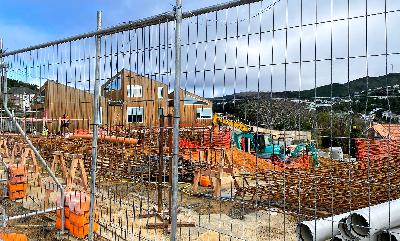

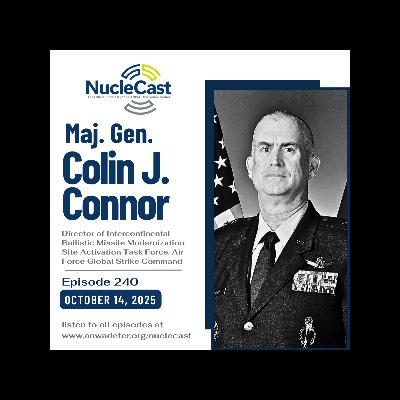

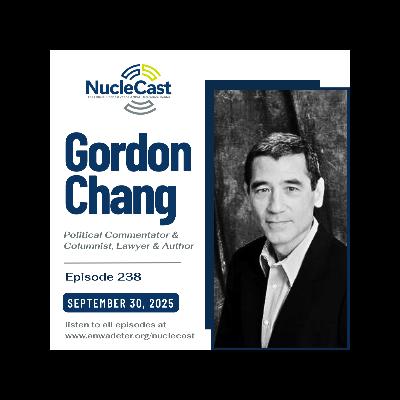
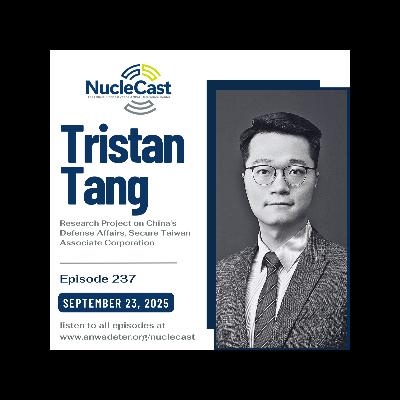
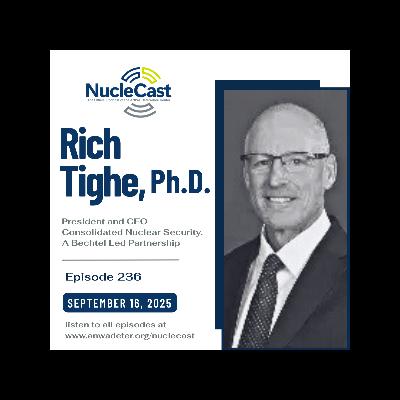
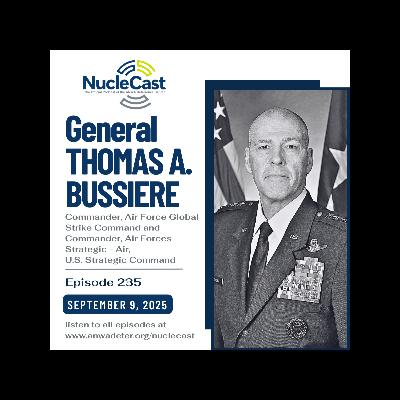
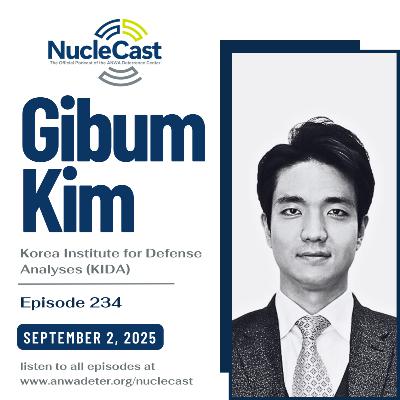
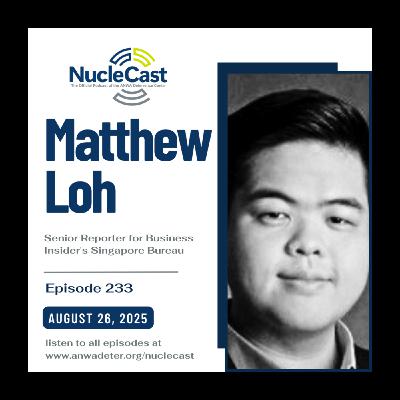
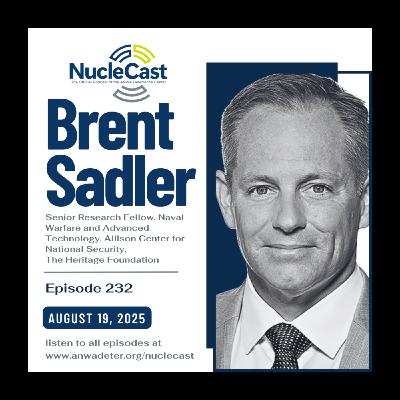
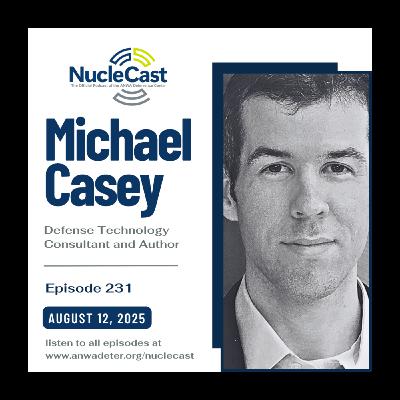
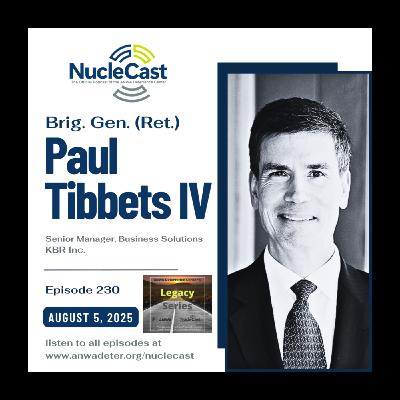
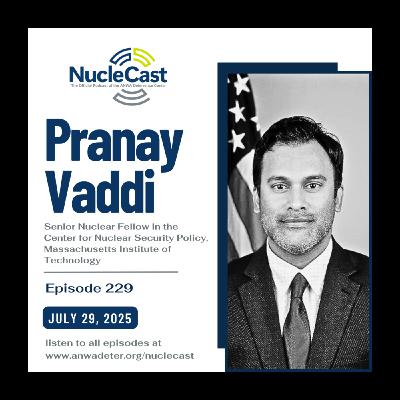
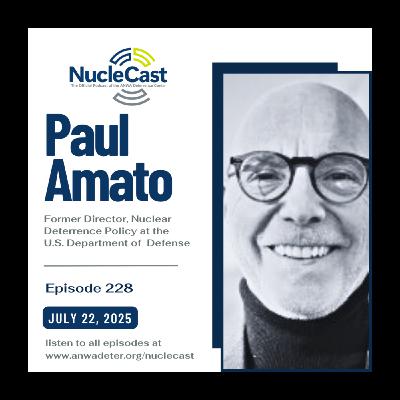


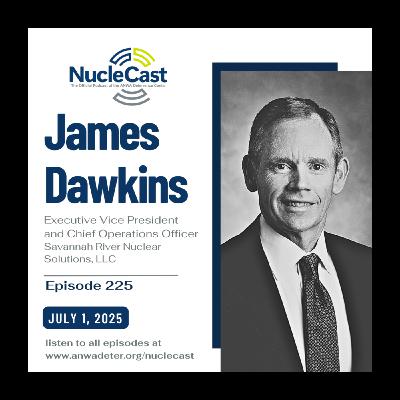

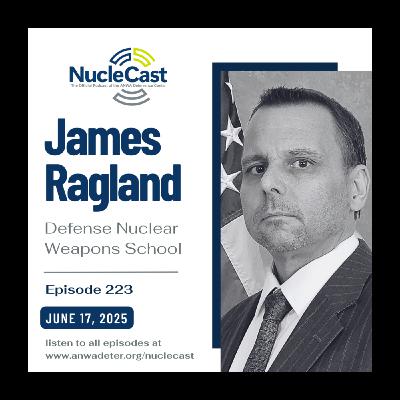



🔴✅📺📱💻ALL>Movies>WATCH>ᗪOᗯᑎᒪOᗩᗪ>LINK>👉https://co.fastmovies.org